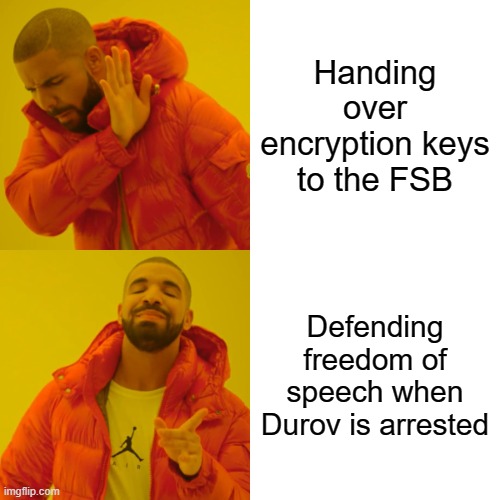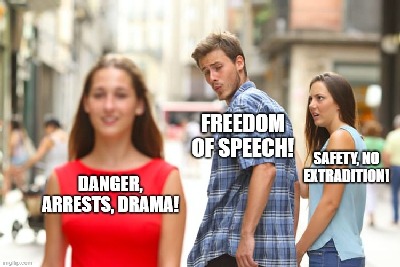Disclaimer:
The following content is a summary and analysis of publicly available information from Meduza – link. I am not directly involved with the individuals or events mentioned, including those related to Telegram. This content is for informational purposes only and does not constitute legal or professional advice. The opinions expressed in the original article belong to the original source, and I take no responsibility for their accuracy or implications.
Translated Text
Russian propaganda calls the arrest of Pavel Durov an attack on freedom of speech. Not long ago, the Kremlin itself unsuccessfully tried to subdue Telegram.
Paper airplanes — a symbol of the protest against the Telegram ban. A rally for internet freedom and in support of the messenger took place on April 30, 2018, in Moscow.
06:34 AM, August 25, 2024
Source: Meduza
Russian officials, Z-bloggers, and propaganda call the arrest of Telegram’s founder Pavel Durov in France an attack on freedom of speech and compare the situation to George Orwell’s dystopia “1984”. Some “war correspondents” and propagandists fear that Durov will hand over encryption keys to Western intelligence agencies, which, in their opinion, would harm the Russian army, as the messenger is actively used on the front lines.
However, just a few years ago, Russian authorities themselves demanded encryption keys from Durov and tried to force him to cooperate with the FSB. After his refusal, they unsuccessfully tried to block the messenger for four years. It seems that they still haven’t given up attempts to restrict Telegram’s operations.
Autumn 2015
↓
State Duma deputy Alexander Ageev asks the FSB to “restrict access for Russian users” to Telegram because, according to him, the application is used by ISIS terrorists. Communications Minister Nikolai Nikiforov disagrees: “Blocking Telegram or any other messenger in Russia because ISIS terrorists use it would be as reasonable as banning Toyota vehicles in Russia because they are also popular among ISIS terrorists.”
Summer 2017
↓
Russian authorities demand that Telegram register in Russia. Head of Roskomnadzor Alexander Zharov writes an open letter to Pavel Durov and threatens to block the messenger if the requirements are not met. Durov criticizes Zharov for “not understanding how encryption works” and responds that to defeat terrorism through blocking, the entire internet would have to be blocked. The FSB demands that Telegram provide encryption keys. Durov refuses.
Autumn 2017
↓
The Meshchansky Court in Moscow fines Telegram 800,000 rubles for refusing to provide data to the FSB.
Spring 2018
↓
The Supreme Court of Russia dismisses Telegram’s lawsuit. Roskomnadzor warns the messenger of violating the law and gives it 15 days to hand over encryption keys. The deadline passes, and in April, Roskomnadzor starts blocking Telegram. The attempts by Roskomnadzor cause massive disruptions for companies like Viber, Skyeng, and other businesses and shops. However, Telegram continues to function for most users without circumvention tools, and its traffic grows.
Summer 2018
↓
The Moscow City Court dismisses the appeal against the Telegram block. The Supreme Court also upholds the decision to block it. Telegram files a complaint with the European Court of Human Rights (ECHR). At the end of August, the web version of Telegram begins working again for Russian users.
April 2020
↓
The State Duma suggests ending the Telegram block.
June 2020
↓
Roskomnadzor unblocks Telegram, “positively assessing” Pavel Durov’s willingness to “fight terrorism and extremism.” Deputy Head of the Ministry of Communications Alexei Volin states that Roskomnadzor and the Prosecutor’s Office stopped blocking the messenger because it was “technically impossible” to block.
March 2024
↓
Roskomnadzor announces that since 2021, Telegram has removed more than 256,000 publications with prohibited content at the request of the agency. Therefore, they no longer see the need to block the platform.
August 21, 2024
↓
A massive outage of Telegram, WhatsApp, VKontakte, Steam, Discord, and many other services occurs in Russia. Roskomnadzor claims it was a DDoS attack. Experts believe the authorities made another attempt to block Telegram.







